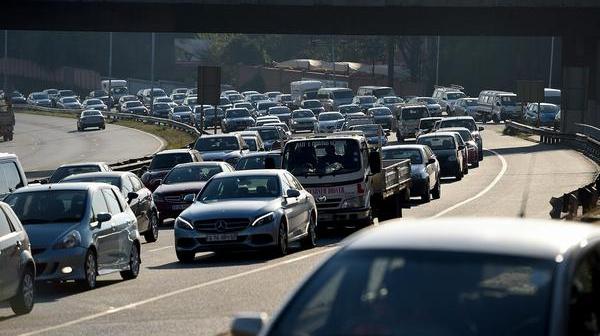
Which is better: a company car or a travel allowance? It’s a question that perplexes both employers and employees. In light of new South African Revenue Service (Sars) requirements for travel reimbursements, it needs to be carefully revisited, says Jerry Botha, master reward specialist and executive committee member of the South African Reward Association.
Botha is referring to the removal of the 12 000km limit that applied to reimbursements. If travel exceeded this distance and the employee was reimbursed at a per-kilometre rate higher than that prescribed by Sars, or another travel allowance was paid, the total amount had to be reflected under code 3702. A reimbursement paid at or below the prescribed rate was declared under code 3703. Either way, Pay-As-You-Earn (PAYE) tax was not deducted from the employee’s income.
From March 1 this year, if an employer reimburses staff at a per-kilometre rate higher than that prescribed by Sars, it has to split the reimbursement into two components. The portion that falls within Sars’s rate must be declared using code 3702, while the portion above that rate must be reflected under a new code, 3722. If the employer also pays a fixed travel allowance, this is declared separately under code 3701, as usual.
Under this new system, the excess reimbursed portion is subject to PAYE, as is the case with a fixed travel allowance or fuel, garage and maintenance cards. Reimbursement at or below the prescribed rate is not subject to PAYE, as before.
“More important than the new code and method of calculation is the removal of the 12 000km limit and the introduction of PAYE on the excess portion,” says Botha. “These changes affect the reward dynamics significantly.”
Employers, particularly those who reimburse staff well above the prescribed rate, should review the new rule to ensure that their staff are enjoying the best tax and cost benefits, he says.
It may be that a lower reimbursement rate puts more money into an employee’s pocket, because there is no PAYE thereon and the reimbursement does not have to be substantiated by a logbook when the employee files his or her income tax return, Botha says.
Either way, compliance with the new rule makes it important for all employers to enforce compulsory employee logbooks, even where the employee does not claim on a tax return. Sars is focusing on employer PAYE audits, and employee logbooks are crucial evidence of tax compliance, Botha says.
The introduction of the requirements is a good opportunity to decide whether employees would benefit more from a company car. “As a rule of thumb,” Botha says, “if more than 60% to 65% of an employee’s travel is for business purposes, they are losing out by using their personal vehicle.”
Typically, fuel makes up only 50% of the total cost of running a car, he says. There are additional expenses, such as maintenance, insurance, and depreciation on the vehicle, which are not fully covered by travel allowances, reimbursements or fuel cards. Highly mobile employees may also have to bear the costs of replacing their private cars prematurely.
Botha says the vehicle-buying habits of South African employers and employees are rooted in emotion, and decisions are not made based on running the numbers. This results in employers being burdened with high fleet costs, while employees can be significantly out of pocket, often realising the problem only when they want to trade in their vehicle, he says.
He says there is a sweet spot for travel reimbursement, reimbursement with a travel allowance and company vehicles. Employers may offer all three as part of a total-package approach.
Employees who clock up many kilometres on business travel are severely disadvantaged if they do not use a company vehicle. “If employers do the calculation correctly,” says Botha, “they will see that a company vehicle is the best reward strategy in this case.”





























